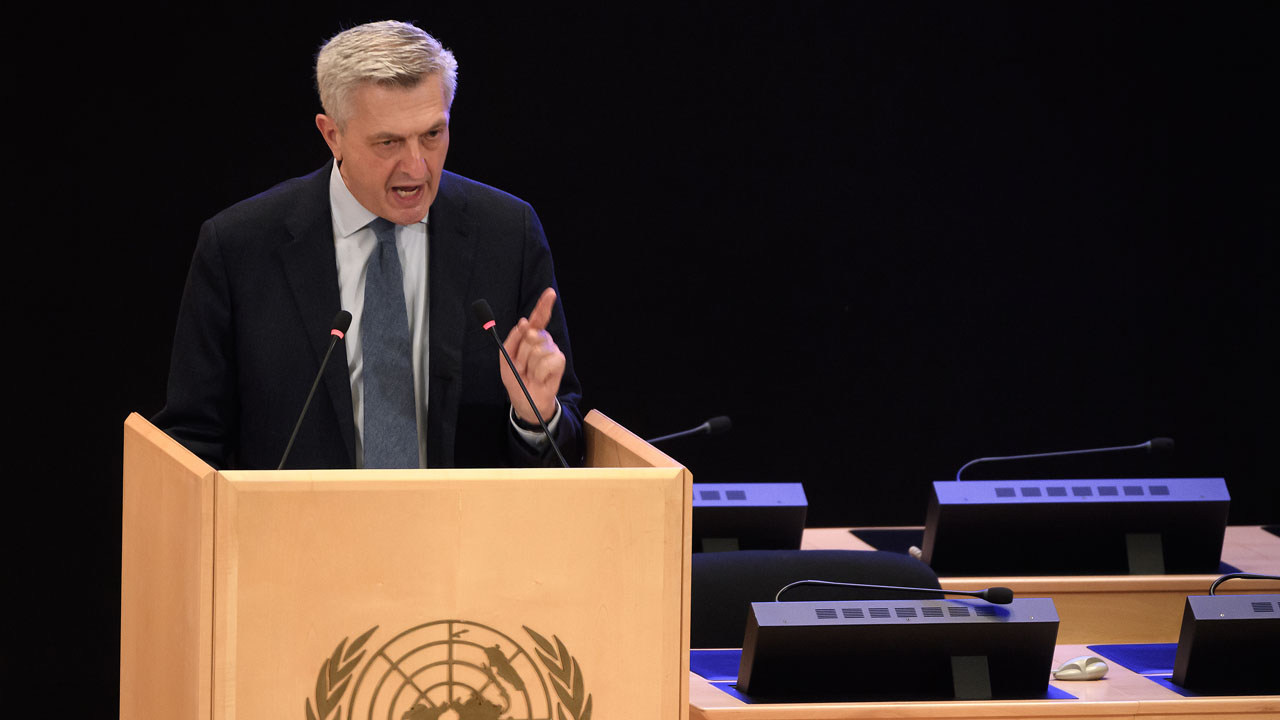Filippo Grandi, the UN High Commissioner for Refugees, said migrants and refugees around the world were continuing to take dangerous routes towards safety and opportunity.
The solution for their destination countries, Grandi told the opening of the United Nations Refugee Agency’s main annual meeting, “cannot be to close the door”.
“We cannot allow xenophobic reactions, only meant to draw facile consensus and electoral votes, to shape responses to challenges that are complex, but manageable.”
He warned of “the dangerous lines of thinking emerging in some of the world’s richest countries — ‘externalising’ asylum beyond a country’s borders — violate international law, put the lives of the most vulnerable in jeopardy and constitute precedents which threaten asylum globally.”
In particular, he highlighted the case of 27 migrants stranded in the Mediterranean Sea for nearly 40 days on a Danish freighter before it was finally permitted to dock in Italy earlier this month.
“States failed to live up to their responsibilities. As a European, I find it shameful that it took more than one month to disembark just 27 people.”
The Italian stressed that “people will continue to flee unless the root causes of their flight are solved.”
“Reducing search and rescue capacity, or impeding those who engage to save others, or pushing back people without due process, will not stop people from moving; it will only lead to more deaths and the further erosion of refugee protection.”
‘Deep disappointment’
Grandi meanwhile welcomed the European Commission’s recent proposal for a new Pact on Migration and Asylum, calling it “a unique opportunity… to set out clearly how responsibilities will be shared”.
In an address coloured by the complexities of the Covid-19 pandemic, Grandi also voiced “deep disappointment” at the low numbers of refugees being resettled from precarious situations to third countries.
“In 2019, fewer than 64,000 refugees were resettled — less than one quarter of one percent of the world’s refugees, in a constantly declining trend,” he said.
The United States, which traditionally has resettled the most refugees, has slashed those numbers under President Donald Trump, offering to take in a record low of just 15,000 refugees next year — down from more than 100,000 under Trump’s predecessor Barack Obama.
Grandi also warned of the deteriorating situation in Africa’s Sahel.
He said he had recently visited the region, which he described as “the theatre of one of the most worrying situations — a political, security and humanitarian crisis which has displaced millions.”
“Few situations have shocked me as much — the violence, the brutality, including horrifying stories of gruesome murders of parents in front of their children.”
In the past year alone, more than 600,000 people have been forced to flee their homes in the region, thousands of schools have been destroyed and thousands of women raped, Grandi said.
“We need to restore a sense of urgency in the Sahel response,” he insisted.
AFP

